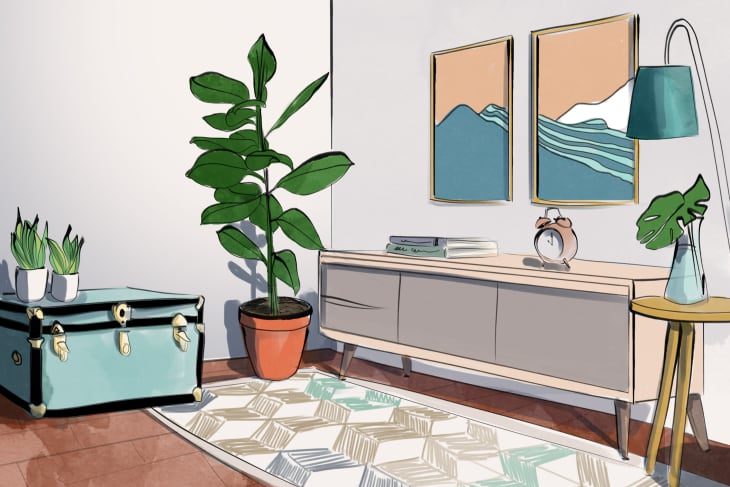Recognizing Minimalism: Approaches for Reducing Clutter and Enhancing Clarity in Everyday Living
Minimalism is increasingly identified as a practical strategy to improving clarity and emphasis in today's messy globe. By systematically evaluating our ownerships and prioritizing intentionality, we can develop areas that not just reflect our values yet likewise promote psychological well-being. Using techniques such as the "Four-Box" strategy can facilitate a much more orderly atmosphere, yet the true challenge hinges on growing a minimalist frame of mind that maintains these efforts. Checking out the nuances of this viewpoint might disclose unusual understandings into exactly how you can change your day-to-day live. What might you uncover when you embrace this deliberate simplicity?
Specifying Minimalism and Its Advantages
Specifying minimalism entails understanding it as a way of life selection that highlights simplicity and intentionality in both day-to-day regimens and physical ownerships. At its core, minimalism urges people to prioritize what really matters, enabling for a much more purposeful and focused existence. By removing away the non-essential, minimalism welcomes individuals to engage deeply with their experiences and environments.
The advantages of adopting a minimal strategy are diverse. It cultivates psychological quality, as minimizing clutter in one's environment can lead to decreased interruptions and stress and anxiety. When surrounded by less possessions, people usually report enhanced concentration and improved efficiency. Second of all, minimalism advertises economic flexibility; by prioritizing demands over desires, people can make more enlightened buying decisions, bring about potential financial savings and lowered financial debt. Moreover, a minimalist lifestyle can produce emotional benefits, as it urges individuals to cultivate gratefulness of what they have as opposed to yearning for a lot more.
Eventually, minimalism is not just regarding material reduction but includes a holistic change in viewpoint, cultivating a life defined by objective, equilibrium, and gratification. Embracing this lifestyle can bring about extensive adjustments in just how individuals perceive and connect with the globe around them.
Evaluating Your Current Clutter
Mess typically materializes as a frustrating buildup of items that no longer serve a function, creating a barrier to accomplishing a minimal lifestyle. Take note of certain groups of products, such as clothing, publications, or kitchenware, as this will certainly assist you understand the extent of the mess.

Additionally, take into consideration the regularity of usage for each item. If something has not served an objective in the past year, it might be a candidate for elimination. This evaluation will certainly not only clarify your relationship with your possessions but will additionally set the structure for effective decluttering in the future. Ultimately, recognizing your existing clutter is a vital step towards accepting minimalism and improving quality in your day-to-day living.

Practical Decluttering Strategies
Having actually analyzed your existing clutter, the next action is to execute useful decluttering methods that promote an even more organized living space. Minimalism. One reliable method is the "Four-Box" strategy, where you designate four boxes labeled: keep, give away, trash, and relocate. This strategy urges quick decision-making and makes sure things are categorized suitably
Another approach is the "One in, One out" rule, which stipulates that for each new product gotten, an existing product should be removed. This concept assists preserve equilibrium and avoids buildup over time. In addition, take into consideration the "30-Day Minimalism Video Game," where you get rid of one product on the initial day, 2 on the 2nd, and so forth, cumulatively cultivating a feeling of success.
Limit on your own to a details number of cherished items, permitting you to appreciate their relevance without frustrating your area. By utilizing these methods, you can develop a more serene and reliable living room, inevitably enhancing clearness in your everyday life.
Producing Intentional Spaces
Developing deliberate areas entails a thoughtful technique to how we design and arrange our atmospheres, making sure each location offers a particular function and shows our worths. This method is vital in cultivating a sense of quality and function in our day-to-days live. By seriously analyzing the function of each area, we can eliminate disturbances and enhance our total wellness.
To create intentional rooms, start by recognizing the key tasks that will certainly take place in each area. For example, an office must be click site created to promote performance, integrating elements such as appropriate lighting, comfy furnishings, and minimal diversions. In comparison, a leisure location must promote serenity, including soothing colors and comfy seats.
In addition, consider the psychological effect of your environments (Minimalism). Incorporating personal products that reverberate with your worths, such as art work or plants, can boost the connection to your room. On a regular basis assess these environments to guarantee they continue to offer their desired function as your demands advance
Ultimately, creating deliberate spaces is regarding making aware choices that line up with your lifestyle, promoting consistency and performance in your living and workplace.
Maintaining a Minimalist Attitude
Embracing a minimal frame of mind requires recurring reflection and intentionality in our actions and ideas. This strategy includes growing recognition of our values and priorities, enabling us to filter diversions and focus on what really matters. To keep this attitude, regular self-assessment is vital. Reserve time to examine your dedications, belongings, and also digital web content, ensuring they straighten with your core principles.
An additional trick strategy is to practice gratitude. Recognizing what you already have fosters satisfaction and lowers the need for excess. This shift in perspective motivates gratitude for simplicity, enhancing total well-being. Incorporating mindfulness strategies, such as meditation or journaling, can even more strengthen a minimalist attitude by advertising clearness and minimizing psychological mess.
Furthermore, establish limits to shield your energy and time. Discover to state no to non-essential obligations and distractions that do not contribute click here for info to your individual development. Border on your own with similar individuals that support your minimalist journey, as shared worths can boost motivation and liability.
Verdict
In verdict, embracing minimalism offers considerable benefits, including reduced mess and boosted quality in everyday life (Minimalism). By systematically assessing ownerships and implementing functional decluttering methods, individuals can develop deliberate areas that cultivate mindfulness and gratefulness. Keeping a minimal way of thinking needs continuous examination and dedication to simplicity, inevitably leading to an extra focused and satisfying way of life. The principles of minimalism serve as valuable tools for growing a setting that supports personal development and well-being.

In addition, consider the "30-Day Minimalism Video Game," where you remove one thing on the very first day, two on the second, and so forth, cumulatively promoting a useful reference sense of accomplishment.
In conclusion, accepting minimalism offers substantial advantages, consisting of reduced mess and enhanced clarity in everyday life.